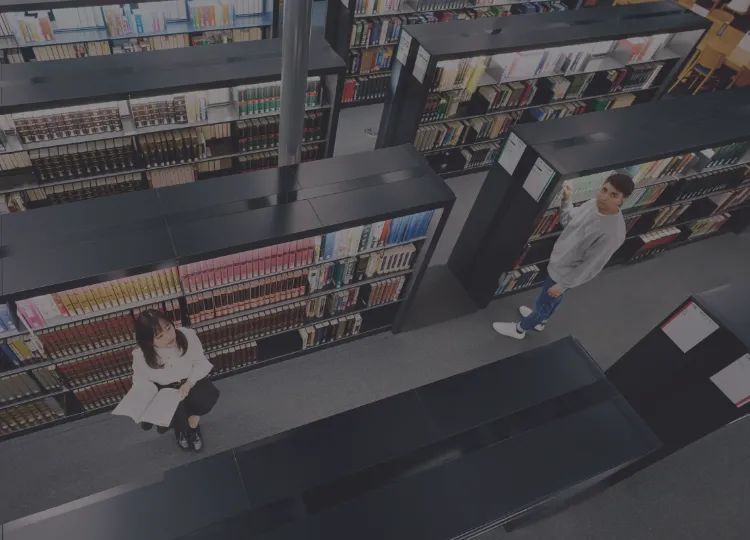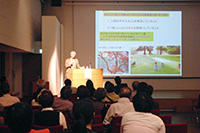
Graduate School of Comparative Culture
Features
- It is a place where students can develop a "comparative cultural" perspective that allows them to see things from multiple angles, rather than being content with the culture in which they were born and raised, and to mix perspectives from both the inside and the outside.
- An extremely diverse range of programs is available, allowing students to receive specialized instruction in a variety of fields in accordance with their own themes and interests.
- In parallel with advanced academic research, students will acquire advanced practical and international knowledge that will be useful in society, as a consolidation or culmination of their four years of undergraduate study.
We will develop a "comparative cultural" perspective that will pave the way for an era of coexistence and cooperation.
Our graduate school was established in 1996 as the Master's Program in Comparative Literature and Culture at the Graduate School of Literature at Otemae Women's University. Currently, we are conducting education and research as the Graduate Graduate School of Comparative Culture.
In today's world, where globalization is rapidly progressing and contact, exchange, competition, and conflict between different ethnic groups and cultures is intensifying, it is essential to consider the position and role of one's own culture within a fluid network with various other cultures. At our graduate school, we base all research on "culture" and aim to cultivate a "comparative cultural" perspective, which is the key to opening up an era of global symbiosis and cooperation.

Special lecture at the Otemae Comparative Culture Society (November 2015)
The aim is to acquire a high level of expertise and practical knowledge.
One of the important goals of a graduate school is to develop selected students into highly skilled researchers and educators after four years of university education. At Otemae University Graduate School, we have a rich and excellent Professor to guide students towards this goal.
In addition to specialization, we also place importance on cultivating advanced liberal arts that can be applied to the workplace. Students will further hone what they have learned in their undergraduate studies, such as English language skills and international and interdisciplinary knowledge and education about Japanese, Western, and Asian cultures, and use this knowledge to play an active role in society in the future. What is most important is a down-to-earth life plan and a clear sense of purpose. We wholeheartedly welcome students who come to study with these in mind.
